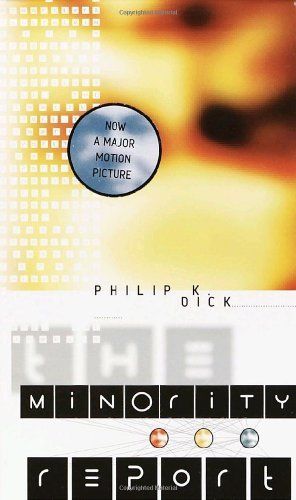
The Minority Report
Commissioner John Anderton's clever use of the Precrime System, which uses "precogs," people with the ability to see into the future, to identify criminals before they can do any harm, is confronted with a serious glitch when his precogs identify Anderton himself as the next criminal and he must race against time to save himself. 25,000 first printing.
Reviews
Lindy@lindyb
Nota@notarein
Ryan LaFerney@ryantlaferney
gabriele@gabippo
mukhesi chabedi@blkkanvas
Loic Beylot@lamicio
Bowie @unbowieable
Daniel Bower@danielbower
Yasmin@yasamarante
mic shulman@micshul
Maurice FitzGerald@soraxtm
Maurice FitzGerald@soraxtm
Rohit Arondekar@rohitarondekar
guilmour ross@guilmour
James Miller@severian
Sang Park@sparky
Tim Pennington-Russell@timpr
Ewan@euzie
Pasza@zarod
Nuno Figueiredo@catharsys
Paulo Furtado@paulofurtado
Paulo Furtado@paulofurtado
Dario Santos @dario
Jk Jensen@jkj